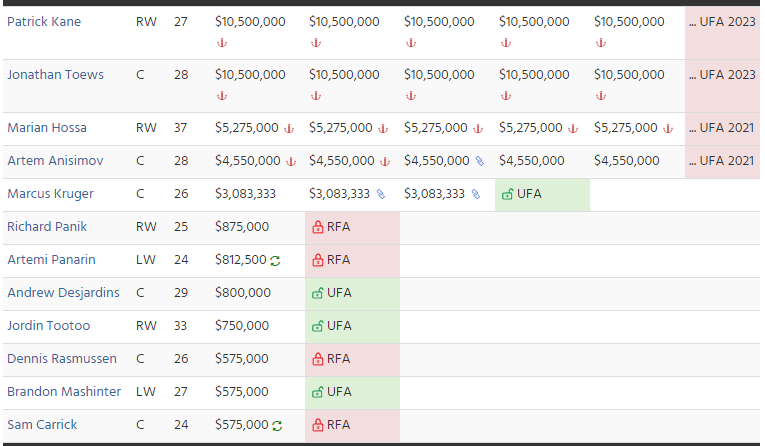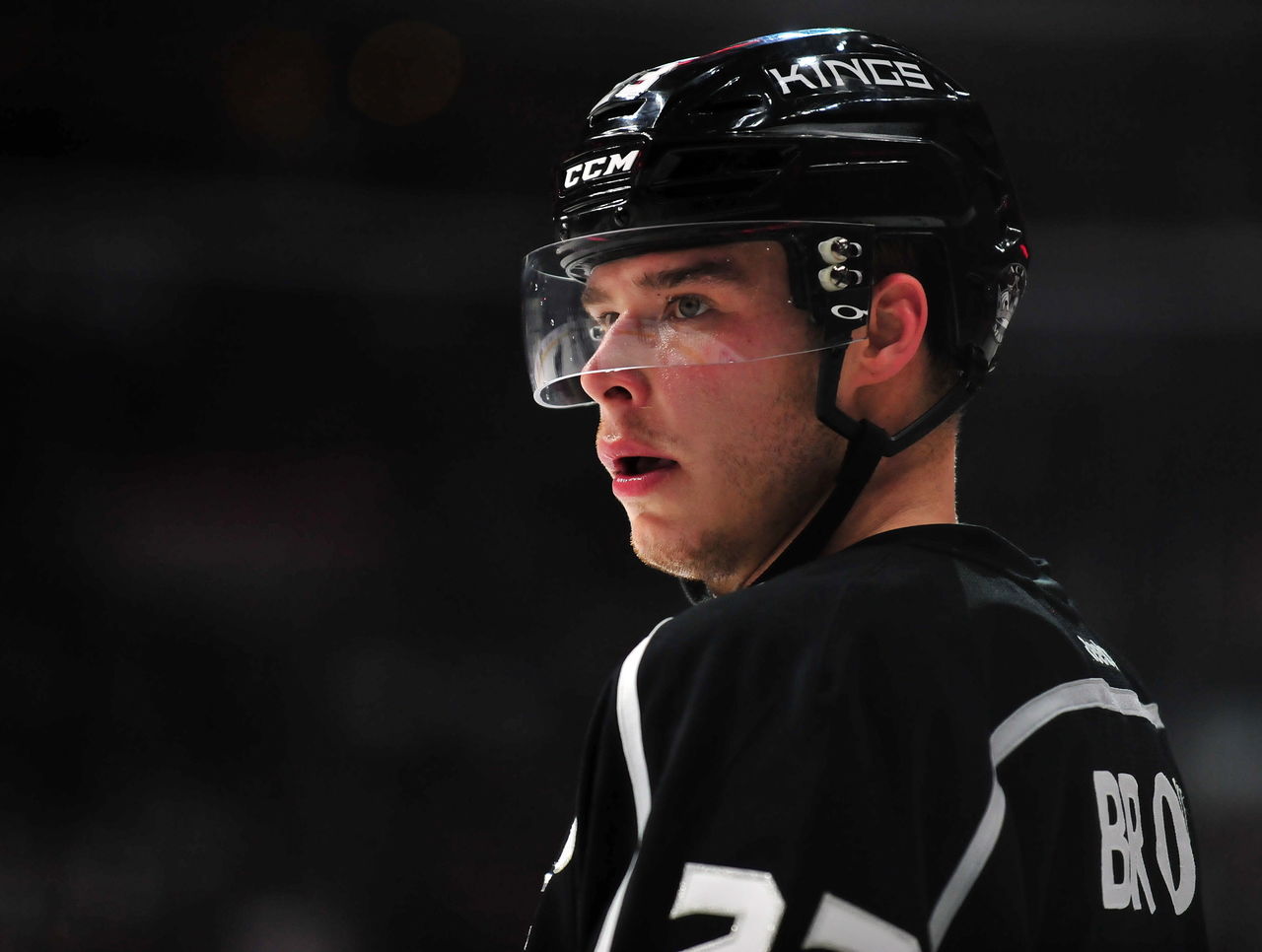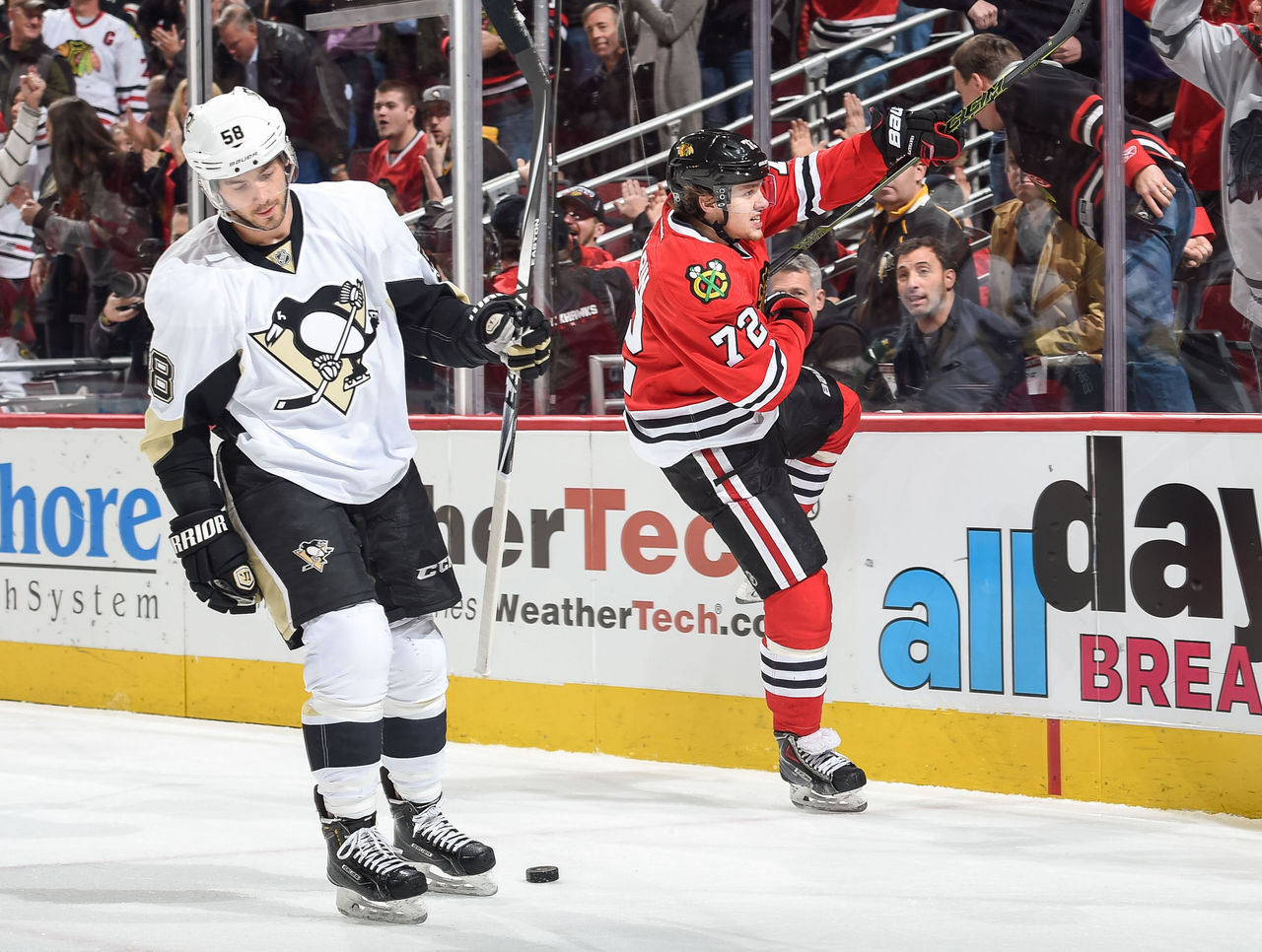Blackhawks and Kings trending toward non-contender status
It's impossible to ignore the commotion across the street.
There's the NBA and its 30 teams, obediently spending billions and billions of dollars to fulfill the requirements of its new, wildly inflated salary scale borne of the league's seismic success.
There are rules to govern spending, of course, including a near $85-million salary floor - or a minimum spending requirement that's almost $12 million more than the NHL's maximum purse. But unlike its little brother, there's an element of elasticity to the walls that police parity in basketball.
And the mandate doesn't punish winners.
The Golden State Warriors - the greatest team in regular-season history and a team that already features the league's two-time reigning MVP and two other All-NBA players - came to terms with a top-three NBA talent this offseason in Kevin Durant.
There was a serendipitous element to this unforeseen marriage. But because it has happened, the NBA has been presented this incredible opportunity to fuel its burning star. The Warriors' every outing will be must-see television, let alone a potential Finals rematch with the NBA champion Cleveland Cavaliers that would achieve pay-per-view intrigue.
All this while the two most successful NHL franchises over the last handful of seasons are being stripped down to their studs, punished for accounting for five of the last seven Stanley Cups.
The Chicago Blackhawks and Los Angeles Kings have managed to preserve the stars capable of anchoring a title run. But winning - and the NHL's desire to maintain competitive balance - has resulted in an erosion of these rosters, and has the clubs now trending toward non-contender status.
The price of winning

No team has hemorrhaged talent quite like Chicago.
Stan Bowman has discarded a head-shaking amount of talent throughout the franchise's dynastic years, a list that includes Brandon Saad, Patrick Sharp, Andrew Ladd (twice), Brian Campbell, Dustin Byfuglien, Nick Leddy, Johnny Oduya, and most recently, Teuvo Teravainen and Andrew Shaw.
They've routinely done quite well padding their core with capable talent, but a quick scan of their current forward fleet is jarring, especially with just a couple million in cap space to play with.

(Courtesy: General Fanager)
Chicago has just five top-six forwards on NHL contracts, and aside from Marcus Kruger, a supporting cast exclusively earning $875,000 or less.
The Kings, meanwhile, haven't had to juggle a similar mass exodus, though they would certainly have preferred to retain Justin Williams. What's hurt the Kings most is that cap restraints have made it impossible to shore up deficiencies with impact imports. Dean Lombardi moved three valuable pieces that included a current NHL starter and a first-round pick to acquire Milan Lucic, only to lack the means to meet his contract demands after only one season.
Rewards, and other mistakes

It should be noted that Lucic wasn't even the most difficult bargain. Poor decisions prevented Lombardi from retaining the cement mixer and satiating the other needs on his roster. He's worked exclusively at the margins since trading for Lucic, and his latest work includes replacing the power forward with Teddy Purcell, and adding a bottom-tier backup goaltender in Jeff Zatkoff.
But the Kings are in this mess primarily for rewarding fading stars like Dustin Brown and Marian Gaborik with long-term deals that carry a combined average annual value that accounts for 15 percent of the team's total payroll. It's a problem that will compound through until 2022.
Aside from Bryan Bickell, the Blackhawks haven't poured money into rapidly depreciating assets. Instead, they've created a problem by ceding to their stars.
Jonathan Toews and Patrick Kane earned $84-million contracts with the two Stanley Cups they delivered the franchise, as well as the third they lifted before the legacy extensions kicked in last summer. But because Toews, Kane, and the similarly extolled Brent Seabrook have been compensated in full, most others have been squeezed.
Virtues

There are benefits to winning, of course, aside from championships. Chicago has held a competitive advantage in recruiting college free agents and assets from overseas since its proliferation of Stanley Cups.
Artemi Panarin chose a winner, then wound up finishing ninth in NHL scoring en route to the Calder Trophy. And now it appears Chicago is chasing Hobey Baker winner Jimmy Vesey, who himself would make an immediate impact at an entry-level rate.
Los Angeles hasn't quite had the same lure, but took advantage of a loophole the Blackhawks exploited in their title trifecta, keeping Gaborik on the shelf until the postseason to ice a roster priced above the cap ceiling.
In a way, that sort of circumvention underscores just how difficult of a task it's become for Bowman and Lombardi to keep championship rosters intact.